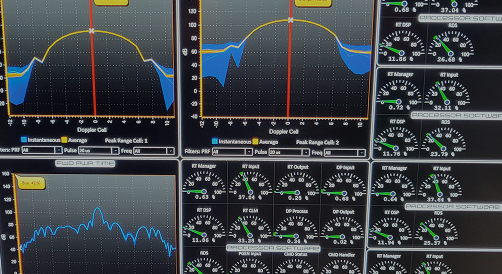LightWave Radar:
One Core, Infinite Possibilities
Built to serve
Radar that Evolves with the Mission.
At the heart of every C Speed system is LightWave Radar (LWR)—a software-defined radar platform engineered for operational adaptability, high-performance detection, and long-term reliability. Built to serve a wide breadth of evolving mission requirements, LWR supports persistent surveillance capabilities across an array of airborne and ground-based products and domains.
BUILT ON A COMMON CORE.
All C Speed radar solutions are powered by the same modular, modern core—combining off-the-shelf (OTS) hardware with proprietary, high-performance mission-configurable radar components. This shared architecture lowers costs, accelerates deployment, simplifies sustainment, and reduces lifecycle cost.
Key Advantages
Mission-Focused Flexibility
Tailor each system with scalable configurations of antennas, amplifiers, and mission payloads including ELINT, IFF, ADS-B, AIS and EO/IR.
Remote Operations
Full monitoring and control capability from anywhere, minimizing personnel requirements.
Field-Proven Reliability
Built with durable, high-volume OTS components for sustained performance in harsh environments.
Unrivaled Detection Performance
Industry-leading clutter rejection and side lobe suppression enable detection of low-RCS targets at long range in challenging environments.
Standard Command and
Control Compatibility
All C Speed radar solutions adhere to industry standard interfaces, such as ASTERIX and STANAG.
Built to Adapt.
Designed to Endure.
LightWave Radar's software-defined architecture allows radar parameters to be reconfigured required as necessary to meet the specific operational needs of customers.

Mission Assurance
- Continuous, built-in health monitoring and remote diagnostics
- Very high reliability digital equipment and fast-swap LRUs minimize zero mission downtime

Mission Advancement
- Cutting-edge clutter rejection and advanced filtering for improved target detection
- Future-ready for cognitive radar integration and dynamic threat adaptation
